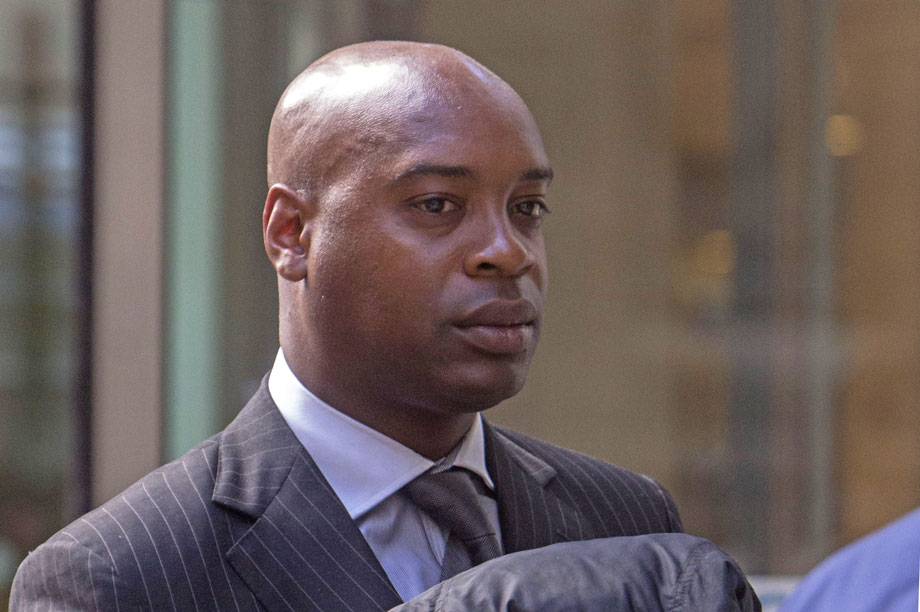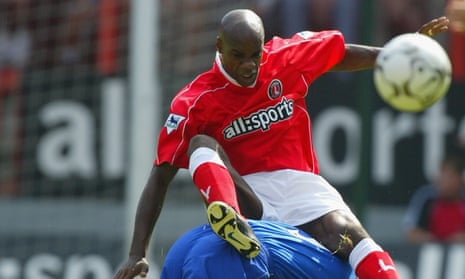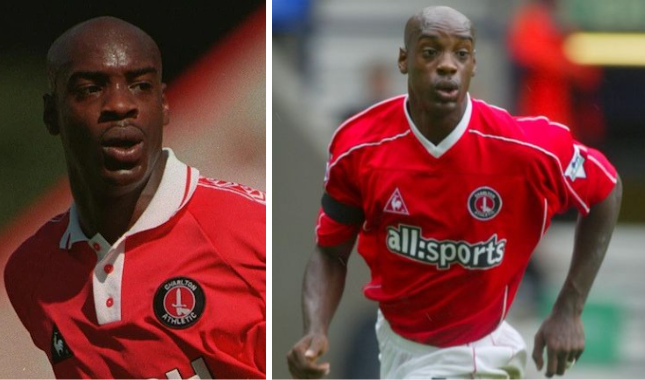Richard Rufus, an iconic name in English football, made his mark as a talented centre-back. His story is one of resilience, growth, and determination, earning him a prominent place in football history. Known for his strong defensive skills, Rufus had a distinguished career that many young players today look up to. This article delves deep into the life and career of Richard Rufus, exploring his rise to prominence and his contribution to English football.
Quick Bio
| Full Name | Richard Rufus |
|---|---|
| Date of Birth | 8th January 1977 |
| Place of Birth | Hackney, London, England |
| Height | 6 feet 3 inches |
| Position | Centre-back |
| Nationality | English |
| Football Career Start | 1995 |
| Retirement Year | 2006 |
| Clubs Played For | Charlton Athletic, Wimbledon, and others |
| International Career | No senior international appearances |
| Coaching Career | Involved in various youth coaching programs |
Early Life and Football Beginnings

Richard Rufus was born in Hackney, London, in 1977, and grew up in a city steeped in football culture. His early life revolved around playing football with friends in the streets of East London. His talent for the game was evident from a young age, and it wasn’t long before he caught the attention of scouts. He joined the youth academy at Charlton Athletic at just 15 years old, where he began to hone his skills and develop his understanding of the game.
His physical attributes, such as his height and strength, combined with his natural agility and composure on the ball, made him an ideal candidate for the centre-back position. Rufus quickly became known for his solid defending and his ability to read the game, making him a standout talent in the academy. By the time he turned 18, he was ready to make the leap into professional football.
Breakthrough at Charlton Athletic

In 1995, Richard Rufus made his first-team debut for Charlton Athletic, a club he would come to represent for the majority of his playing career. His introduction to the senior squad marked the beginning of a promising career in English football. At the time, Charlton was competing in the Premier League, which meant Rufus had the opportunity to test his skills against some of the best players in the world.
His debut season was full of ups and downs, but his raw talent shone through. Rufus’s early performances caught the eye of fans and analysts alike. He formed a solid defensive partnership with other key players, which helped Charlton maintain their place in the Premier League. Despite the challenges that came with playing at the highest level, Rufus’s consistency and composure were notable. As a centre-back, he was known for his no-nonsense approach to defending, often making key clearances and breaking up opposition attacks with ease.
Key Characteristics and Playing Style
Richard Rufus’s style of play made him a standout centre-back during his time in the Premier League. He was known for his physicality, standing at an imposing 6 feet 3 inches, which gave him an advantage in aerial duels. His ability to read the game was one of his strongest assets; he was often in the right place at the right time to make critical interceptions and tackles. Unlike many defenders of his era, Rufus was also comfortable with the ball at his feet, which allowed him to bring the ball out from the back and contribute to attacking movements.
Moreover, Rufus’s leadership qualities were evident on the field. He was often vocal with his teammates, organizing the defence and ensuring that the back line remained compact. His calmness under pressure allowed him to make decisions swiftly, even in high-pressure situations. This made him not only a reliable centre-back but also a key figure in the locker room, where he was well-respected by his teammates.
Notable Achievements and Memorable Moments

Throughout his career, Richard Rufus achieved several significant milestones and created moments that fans still remember fondly. His most notable achievement was being an integral part of the Charlton team that secured promotion to the Premier League in 1998. This was a massive accomplishment for both the player and the club, as Charlton’s return to the top flight marked the start of a successful period for the club.
One of Rufus’s most memorable moments came in 1999, when he scored a crucial goal in a Premier League match against Liverpool. This goal not only helped Charlton secure a vital win but also highlighted Rufus’s attacking instincts—rare for a centre-back. His ability to contribute to both ends of the pitch made him a unique player during his time.
In addition to his club achievements, Rufus was highly regarded for his consistency and durability. Over the course of his career, he made over 200 appearances for Charlton Athletic, becoming one of the club’s most reliable and beloved players.
Injuries and Setbacks
Unfortunately, Richard Rufus’s career was marred by a series of injuries that ultimately led to his early retirement from professional football. Despite being a resilient player, Rufus suffered several knee injuries, which began to affect his performance on the pitch. The first serious injury came in the early 2000s, and although he fought hard to return to form, it was clear that his body was beginning to slow down.
After years of battling injury setbacks, Rufus made the difficult decision to retire in 2006. He was only 29 years old, a relatively young age for a footballer to retire, especially given his potential. However, his injuries had taken a toll, and Rufus felt it was time to step away from the game he loved.
Post-Retirement Career and Involvement in Football
After retiring from playing, Richard Rufus stayed involved in football, albeit in a different capacity. He began to focus on youth coaching, using his vast experience to help develop the next generation of football talent. Rufus has worked with various academies and coaching programs, where he has been able to share his knowledge of the game and his defensive expertise with young players.
Additionally, Rufus has been active in charity work, particularly focusing on supporting underprivileged communities and using football as a tool to inspire and empower young people. His commitment to improving the lives of others through football has earned him praise and recognition, showing that his influence extends beyond the pitch.
Legacy and Impact on English Football
Though Richard Rufus may not have received the international recognition that some of his peers achieved, his impact on English football remains significant. He was a crucial part of Charlton Athletic’s rise and their stability in the Premier League during the late 1990s and early 2000s. His leadership, defensive skills, and versatility made him a fan favorite and a respected figure within the club.
Rufus’s legacy is also reflected in the way he continues to be remembered by fans and former teammates. His role in Charlton’s success during his time at the club is still discussed among supporters, and he is frequently cited as one of the best defenders to have ever played for the club. His resilience in the face of adversity, particularly with his injury struggles, also serves as an inspiration for young players who face challenges in their own careers.
Richard Rufus
For young defenders aspiring to make a career in football, Richard Rufus stands as an exemplary figure. His career is a testament to the importance of hard work, dedication, and mental toughness. Despite the challenges he faced, Rufus maintained a level of professionalism and determination that saw him succeed at the highest level. His ability to adapt to different situations and his natural leadership qualities made him a standout performer, both for Charlton Athletic and in the Premier League as a whole.
As a role model, Rufus continues to inspire young footballers, particularly those who play in defensive positions. His story shows that, with the right mindset and work ethic, it is possible to overcome obstacles and achieve success in the competitive world of professional football.
Final Thoughts on Richard Rufus
Richard Rufus may not have played for the biggest clubs in world football, but his contributions to the sport are undeniable. His time at Charlton Athletic, where he became a central figure in the team, solidified his place as one of the Premier League’s most reliable centre-backs during his era. Rufus’s commitment to the game, coupled with his leadership and defensive abilities, has left a lasting legacy in English football. Even after his retirement, his influence continues to be felt, both through his work with young players and his dedication to football-related causes.
FAQs
Why did Richard Rufus retire early?
Richard Rufus retired early due to ongoing knee injuries that affected his ability to perform at the top level.
Did Richard Rufus play for the England national team?
No, Richard Rufus never earned a senior cap for the England national team despite his strong performances in the Premier League.
What was Richard Rufus’s playing style like?
Richard Rufus was known for his physicality, strong aerial ability, and excellent reading of the game, which made him an outstanding centre-back.
For More Latest Update oneuppress

